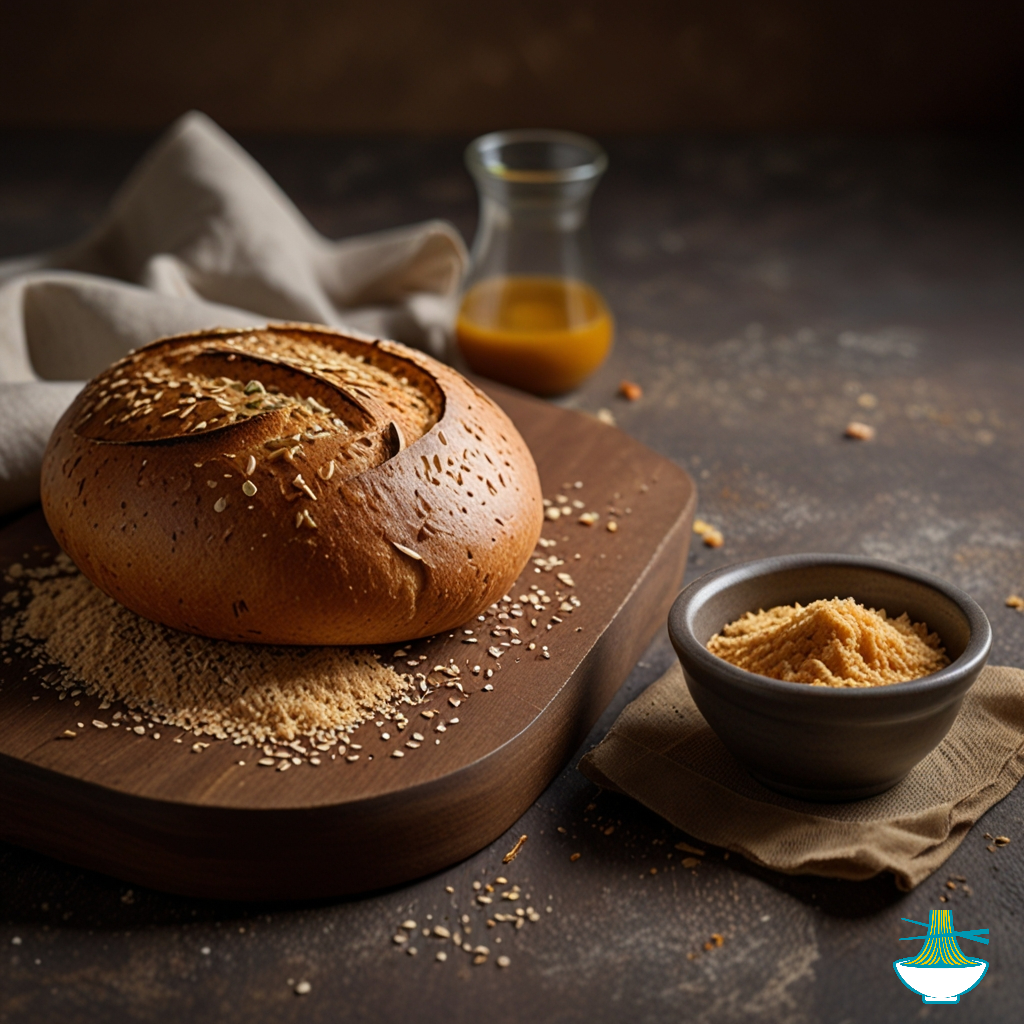Al Marqooq: A traditional Emirati bread made with whole wheat flour, cooked on a hot plate. Its history traces back generations, symbolizing Emirati culinary heritage and cultural significance.
Ingredients:
- 2 cups whole wheat flour
- 1 teaspoon salt
- Water (as needed)

Method:
1. In a mixing bowl, combine whole wheat flour and salt.
2. Gradually add water, kneading the mixture into a smooth dough.
3. Divide the dough into small balls and roll them out into thin circles.
4. Heat a hot plate or skillet over medium heat.
5. Place the rolled dough onto the hot plate and cook for about 2-3 minutes on each side until golden brown spots appear.
6. Serve warm with your favorite accompaniments or dishes.
Nutrition Value:
1. 2 cups whole wheat flour:
- Calories: Approximately 440 kcal
- Carbohydrates: Around 92 grams
- Protein: Roughly 16 grams
- Fat: About 2 grams
- Sodium: Minimal, negligible contribution to daily intake
- Cholesterol: Zero
- Vitamins: Rich in B vitamins (especially niacin, thiamine, and folate), vitamin E, and minerals like magnesium, zinc, and phosphorus.
- Minerals: Contains iron, magnesium, phosphorus, and zinc.
- Nutritional Benefit: Whole wheat flour is a good source of dietary fiber, which aids in digestion and helps regulate blood sugar levels. It also provides essential vitamins and minerals necessary for overall health.
2. 1 teaspoon salt:
- Calories: Negligible (approximately 0)
- Carbohydrates: Negligible (approximately 0)
- Protein: Negligible (approximately 0)
- Fat: Negligible (approximately 0)
- Sodium: Around 2,300 mg (based on standard table salt)
- Cholesterol: Zero
- Vitamins: No significant vitamin content
- Minerals: Consists mainly of sodium chloride
- Nutritional Benefit: While salt itself doesn't offer significant nutritional benefits, it enhances the flavor of the bread and balances its taste. However, excessive salt intake should be avoided due to potential health risks like high blood pressure.
3. Water (as needed):
- Calories: Zero
- Carbohydrates: Zero
- Protein: Zero
- Fat: Zero
- Sodium: Zero
- Cholesterol: Zero
- Vitamins: Zero
- Minerals: Zero
- Nutritional Benefit: Water is essential for hydrating the dough and facilitating the formation of gluten, which gives the bread its structure and texture. Additionally, adequate hydration supports overall bodily functions and helps maintain optimal health.


Comments